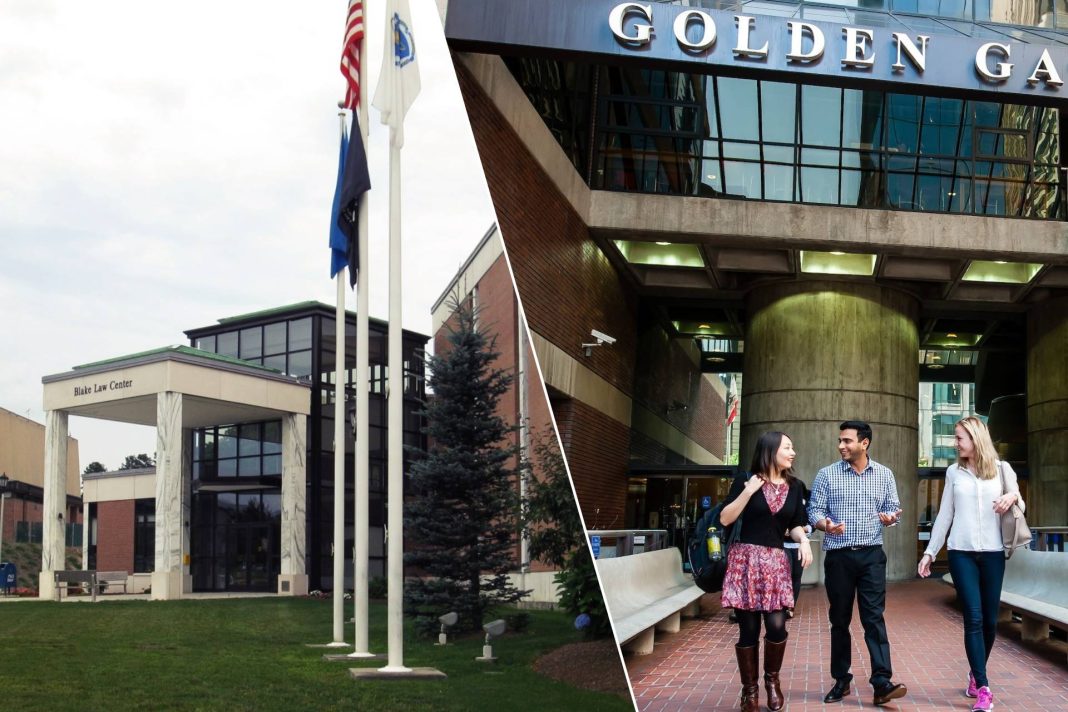The American Bar Association’s get-tough accreditation standard regarding bar passage has landed two more schools in hot water.
Golden Gate University School of Law in San Francisco and Western New England University School of Law in Massachusetts were recently put on notice by the ABA that they were not meeting the relatively new threshold of having 75% of graduates passing the bar within a two-year period.
In the worst-case scenario, they could lose accreditation. However, the ABA gives schools time to bring their percentages up.
Golden Gate University’s two-year pass rate for 2018 graduates was 57.5%, while Western New England’s stood at 64.8%. Both are failing to meet Standard 316, which was passed 2019.
Supporters praised the ABA’s action, saying schools were failing students if they couldn’t meet that number. Grads need to pass the bar to practice law, after all, and most schools were easily eclipsing it.
Critics were worried about the affect it would have on diverse schools, some of which were not meeting that threshold. If they closed, diversity efforts could be compromised, they feared. It’s not a concern without merit; the law profession continues to struggle with diversity.
Initially 10 schools were out of compliance. Since then, most have reached the 75% mark. Two of the lagging schools are in Puerto Rico. The other school remaining out of compliance is Western Michigan University Thomas M. Cooley Law School.
Golden Gate University and Western New England need to give reports of their progress to the ABA by Feb. 1. They are then to meet with the council of the ABA’s Section of Legal Education and Admissions to the Bar during its May meeting.
Golden Gate University is confident it will rebound.
“My number one priority since joining GGU Law last summer has been improving the school’s bar passage rates,” said Colin Crawford, dean of Golden Gate University. “GGU has always placed a premium on preparing our students for legal professions, and we have been rededicating our efforts to ensure strong bar passage rates for graduates.”
Schools that overcome poor bar outcomes have put more of an emphasis on bar prep as well as improve the academic credentials of entering students.
For instance, Atlanta’s John Marshall, which initially was out of compliance, hired Scot Goins to be its director of the Office of Academic Achievement and Bar Success in 2020. Previously, he was a regional director for Kaplan Bar Review.
Under his leadership, John Marshall proceeded to “create new programming for first-time and repeat takers, more than doubling the workshop offerings and increasing outreach efforts and engagement opportunities for alumni preparing for the bar exam,” the school said.
In 2021, the school achieved compliance.
There are a few things to note about how this standard works. Schools’ bar passage rates are fluid. Bar exams are held in July and February and results can change outcomes. COVID also made this more complicated because many jurisdictions delayed bar exams in 2020. And some schools offered diploma privilege at the time, meaning graduates didn’t have to take the bar.
Also, just because a school achieves compliance doesn’t mean they are free and clear. They have to continue to meet the 75% mark.
Golden Gate University has one big hurdle: The California bar is one of the nation’s toughest. Just 70% of first-time test-takers passed the July 2021 exam. Golden Gate University finished last among the state’s ABA-approved law schools, with 38% of first-time takers passing.
Of late, the school has upped the academic standing of entering students. In 2017, the median LSAT score was 148. In 2021, it rose to 150. It also reduced class size. In 2018, the 1L class was 237 students. It dropped to 127 the following year.
Such moves were likely in part because the school had faced other ABA action as well. In 2018, the ABA found the school not in compliance with another standard, one that requires law schools to admit students capable of finishing law school and passing a bar exam.
Western New England has faced ABA scrutiny before too. In 2019, it ran afoul of the ABA regarding its financial resources. That was resolved quickly.
Regarding bar passage, it feels it has already hit the 75% mark. According to Dean Sudha Setty:
“WNE Law is planning to share with the ABA Council shortly that the bar passage rate for the class of 2020 is at 77.1%, with the possibility of that number increasing if additional repeat takers from that class pass the bar examination in February 2022. We look forward to the Council reviewing that information and considering WNE Law’s compliance with regard to Standard 316.”

